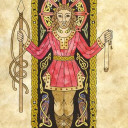As far as the question "is it a religion" to me goes. Does it take the place of a contemporary religion in your daily life? IE Does it inform your sense of morality and justice, do you draw comfort or strength from it's teachings? Do you endeavor to live as an Epicurean or is it just a discussion topic, would be the dividing line for me. Spirituality and mysticism need not apply. My example of a non faith based religion... non revealed religion, better term, is Deism a la Thomas Paine. Early science taking the place of mysticism and an uncaring creator god taking the place of more classical deities. So there is historical president for a modern evolution of religion. But in the end I see it as a personal choice for everyone how they choose to see, and practice Epicureanism.
Posts by DavidN
We are now requiring that new registrants confirm their request for an account by email. Once you complete the "Sign Up" process to set up your user name and password, please send an email to the New Accounts Administator to obtain new account approval.
-
-
A church can be lead by vote or committee, and instead of employing a "priest" or speaker fulltime you could have guest speakers, like you do for your interview podcasts. I know that submission may be a problem in contemporary religions but I don't see it as an issue as much with Epicureanism otherwise it's not being properly practiced.
-
"The IRS determines that an organization meets religious purpose based on two main guidelines:
- That the particular religious beliefs of the organization are truly and sincerely held.
- That the practices and rituals associated with the organization’s religious belief or creed aren’t illegal or contrary to clearly defined public charity"
As Cassius already pointed out there are legal protections and incentives to being considered a religion in the united states. Even more for being a "church". But these are things whose utility is not yet necessary, but something I've pondered on occasion, usually after watching something about Scientology and all the shenanigans they get away with because of there religious status.
Secondly as Cassius also already pointed out, any discussion of Epicureanism as a religion requires a high level of understanding of Epicureanism and alot of redefining of terms as there understood today in order to align with Epicureanism. Which at the moment I find distracts more from study then it currently provides utility. That's not to say that at some point that might change, so I'll reserve the right to revisit the topic at a later date.
-
It's from Philodemus, quotes or paraphrasing depending on the scholar, Metrodorus.
Philodemus and Metrodorus are on the same page throughout: successful property-management is neither following the Cynics and living in a tub to avoid the bother, nor getting so obsessed with it as to be (in Philodemus’ vivid—if restored—phrase) “trapping oneself on treadmills” (XIV.28). It is taking trouble, but trouble that will pay off and help not just you but your friends (is allakton for greater pleasure, XV.37, XIX.22, and parametrētrikon tōi phusikōi telei, in a measure that accords with natural goals, XVII.45, cf. XXV.47) And if it does not pay off, then you must take more trouble, not less. This treatise sheds more light than any other Herculaneum text on the “hedonic calculus” by which the Epicureans could justify an all-but-Stoic amount of painstaking, just to ensure and secure pleasure.
-
Sadly I won't be able to make it Wednesday, but I'll add to the discussion. Metrodorus in on wealth talks about enduring pains in the present in order to avoid greater pain or gain greater pleasure in the future, from which we derive the concept of hedonic calculus. To me that sets the whole philosophy up to be a kind of psychological math problem. Which is why I like it so much, the idea that there's a formula for happiness. Just solve for x. Everyone's y might be different but x should be the same. Also from this I take that you can't eliminate pain in life so the goal should be to minimize it in a logical fashion. Accepting pains that can lead to greater pleasures and avoiding unnecessary pain. Hope this helps rather than just being a tangent.
-
PD 26 says "All desires that do not lead to pain when they remain unsatisfied are unnecessary, but the desire is
easily got rid of, when the thing desired is difficult to obtain or the desires seem likely to produce harm."
So not all desires produce pain, so Epicurus concept of desire was not quite so black and white.
-
Philodemus suggests we avoid heavy toil and unethical means of acquiring wealth. The only 2 specific occupations mentions are teaching and rental property. He also makes mention of the skills we should employ when practicing oikonomia. "The philosopher will not conduct the administration of his property in a technical manner but will rely instead on common experience accompanied by reason, for these suffice to secure the financial means to a stable and tranquil life."
-
Two points to start with one to poke at Don, Wouldn't the Jefferson Bible count as an epicurean "job".
And to Cassius:
"The only horrible thing in the world is ennui, Dorian. That is the one sin for which there is no forgiveness." Oscar Wilde
“Boredom is therefore a vital problem for the moralist, since at least half the sins of mankind are caused by the fear of it.” ― Bertrand Russell
Otherwise I agree with the conclusions reached pertaining to PD's.
-
I'll have to grab a copy of philodemus I'm suppose to be working on an epicurean economics treatise of sorts on SOFE. So I can share my findings on the forums as I go. Just have to finish slogging my way through one of Catherine Wilson's books first, she's a really good and well versed writer but very dry and technical.
-
Nietzsche's point is to live a life worth reliving. Taking into account all the bad what would you have to do to make it worth living over and over again. It's a call to action to examine your life and change it for the better. What ever that might mean for your life and demeanor. There's quite abit more to it but that's the basics.
-
Godfrey In the realm of physics I'd argue that modern instruments extend our range of observations into realms previously unobservable.
Pacatus And our willingness to change our standing beliefs as observations change I believe is part of the criterion of truth. It's one of the things I most like about Epicureanism, the anti-dogmatism of it.
-
I've seen the Caesar note before, but not as a true Epicurean but as a patron of multiple schools including Epicureanism.
-
So were talking about the Criterion of Truth, and what amount and class of evidence beyond our own experience should be required to form such an opinion?
-
My plan is and has been to, if economic conditions remain favorable, buy land back home and build a homestead that I can share with my friends. Modeled after the Borsodi and Nearing homesteads, working the land half the day and spending the later half of the day in contemplation, discourse, writing or enjoying time with friends and family. With a few extra cabins to rent to tourists and students.
-
Godfrey's meditations on the atomic universe reminds me of Nietzsche's answer to the eternal recurrence, as found in De Rerum Natura. Rather then denying our connection to the eternal recurrence Nietzsche asks us to examine our life and make it worthy of living again. 'This life as you now live it and have lived it, you will have to live once more and innumerable times more; and there will be nothing new in it, but every pain and every joy and every thought and sigh and everything unutterably small or great in your life will have to return to you, all in the same succession and sequence—even this spider and this moonlight between the trees, and even this moment and I myself. The eternal hourglass of existence is turned upside down again and again, and you with it, speck of dust!' The question in each and every thing, 'Do you desire this once more and innumerable times more?' would lie upon your actions as the greatest weight. Or how well disposed would you have to become to yourself and to life?"
-
I like your list of key texts, I've read a few of them, I'll have to make my way through them as I find time.
-
Yup that was me, I'll respond abit more in depth alittle later, I'm on night shift right now and it takes a few days to get used to the change.
Unread Threads
-
- Title
- Replies
- Last Reply
-
-

-
A Question About Hobbes From Facebook
- Cassius
August 24, 2025 at 9:11 AM - Uncategorized Discussion (General)
- Cassius
August 24, 2025 at 9:11 AM
-
- Replies
- 0
- Views
- 577
-
-
-

-
Anti-Natalism: The Opposite of Epicureanism 8
- Don
August 20, 2025 at 7:41 AM - Comparing Epicurus With Other Philosophers - General Discussion
- Don
August 23, 2025 at 11:26 AM
-
- Replies
- 8
- Views
- 1.2k
8
-
-
-

-
Ecclesiastes what insights can we gleam from it? 4
- Eoghan Gardiner
December 2, 2023 at 6:11 AM - Epicurus vs Abraham (Judaism, Christianity, Islam)
- Eoghan Gardiner
August 18, 2025 at 7:54 AM
-
- Replies
- 4
- Views
- 2.5k
4
-
-
-

-
Grumphism? LOL
- Don
August 16, 2025 at 3:17 PM - Uncategorized Discussion (General)
- Don
August 16, 2025 at 3:17 PM
-
- Replies
- 0
- Views
- 583
-
-
-

-
Beyond Stoicism (2025) 20
- Don
August 12, 2025 at 5:54 AM - Epicurus vs. the Stoics (Zeno, Chrysippus, Cleanthes, Epictetus, Seneca, Marcus Aurelius)
- Don
August 15, 2025 at 4:28 PM
-
- Replies
- 20
- Views
- 2.1k
20
-
Finding Things At EpicureanFriends.com
What's the best strategy for finding things on EpicureanFriends.com? Here's a suggested search strategy:
- First, familiarize yourself with the list of forums. The best way to find threads related to a particular topic is to look in the relevant forum. Over the years most people have tried to start threads according to forum topic, and we regularly move threads from our "general discussion" area over to forums with more descriptive titles.
- Use the "Search" facility at the top right of every page. Note that the search box asks you what section of the forum you'd like to search. If you don't know, select "Everywhere." Also check the "Search Assistance" page.
- Use the "Tag" facility, starting with the "Key Tags By Topic" in the right hand navigation pane, or using the "Search By Tag" page, or the "Tag Overview" page which contains a list of all tags alphabetically. We curate the available tags to keep them to a manageable number that is descriptive of frequently-searched topics.

